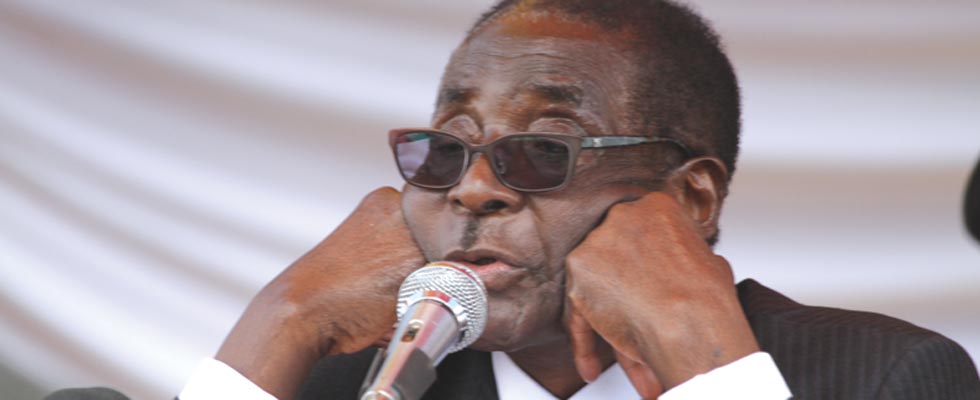
ECONOMISTS have said Zimbabwe’s expectations from the recently signed Zimbabwe-Russia deal worth US$3 billion are too high, warning that promises of thousands of jobs were too good to be true.
TARISAI MANDIZHA
Zimbabwe and Russia have signed an agreement for the setting up of a US$3 billion platinum project in Darwendale under a deal expected to create 15 000 jobs in 10 years.
Economist John Robertson told The Standard that the creation of the thousands of jobs would take many years and the country would not see half of these in the next five years because the projects required a lot of capital.
Robertson said the construction of a refinery as promised under the deal, would take four years.
“We have had little experience of Russian business practices and we have to make sure that they don’t bring their workers here from Russia. However, for the highly skilled jobs that take many years to learn, we should quickly agree to their being allowed work permits and residence permits for essential staff. We have slowed or stopped other investments by being too restrictive,” he said.
Robertson said the other part of the deal for arms would turn out to be a waste of money as weapons would not benefit the country. He said any investor will take time to create a working enterprise.
The economist said Zimbabwe should have realised a long time ago that high levels of confidence had to be created and sustained to make an impression on investors who have options to invest elsewhere.
- Chamisa under fire over US$120K donation
- Mavhunga puts DeMbare into Chibuku quarterfinals
- Pension funds bet on Cabora Bassa oilfields
- Councils defy govt fire tender directive
Keep Reading
“We slipped up on this some years ago, and investors have been avoiding us. Now we are paying a very high price for falling behind; we have become desperate. In fact, we have become so desperate that the very few investors who are showing any interest are able to dictate terms that might not be in our best interests. Perhaps that is what the Russians and Chinese are doing,” he said.
Robertson said the government has constantly proved that it resents and distrusts business, therefore its attitude towards most investors was hostile and its intentions were always to exert control over the investors’ activities.
“The whole of the Zim Asset document should be seen as a description of the ways that government plans to maintain control over business activities.”
The strategies column in the 50-page matrix shows how these controls will be focused and applied.
“I would argue that well-motivated businesses do not need such controls and will show no interest in coming to Zimbabwe while government shows every intention of interfering at every turn,” he said.
Confederation of Zimbabwe Industry (CZI) president Charles Msipa said generally, mining by its nature was a long-term business. He said the lead times between the investments and the benefits could be extended, hence it was not for those who seek “instant gratification” but needs patience and deep capital resources and perseverance.
“What is important is that we have made a start in harnessing the capital and technology required to expand the exploitation of our platinum resources,” Msipa said.
“The new platinum mining project in Darwendale will generate significant inflows of Foreign Direct Investment and technology, create significant levels of direct and indirect employment through linkages with other sectors, significantly increase platinum production and revenues in Zimbabwe — these are a positive and welcome development for our economy.”
In terms of the biggest investment deals in Zimbabwe, in 2011 government entered into a deal worth US$750 million with Essar Holdings but to date nothing has happened.
Zimbabwe National Chamber of Commerce economist Kipson Gundani said the Zimbabwe Russian deals were significant, but for the country to benefit, it depended on how these were going to be structured.
“The deal should be structured to allow value addition and local procurement as a key procedure and these are just some of the basic elements which will make the deal more significant,” Gundani said.
According to the Minister of Mines and Mining Developments Walter Chidakwa, the first phase of the Darwendale project , which will run from this year to 2017, involves a US$600 million open pit mine, with a projected output of 265 000 oz per annum and will create 2 000 jobs.
From 2018-2021, GDI will enter its second phase, which will see the extension of the concentrator and the setting up of a smelter.
Output is projected to rise to 530 000 oz per annum, with 5 000 jobs created, with investment reaching US$1,2 billion.
The deal, nearly a third of the country’s estimated GDP, will see the mine producing about 10 million tonnes of ore to produce 800 000 platinum ounces and creating over 8 000 jobs after the project is completed in 2024.










